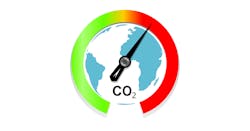Is climate change actually good for the economy, given all the clean-up/restoration jobs severe weather is creating and the employment surges in green energy?
Strangely enough, climate change does produce jobs and boost the economy as we struggle to make ourselves more resilient to its ravages. Some would argue that the renewable energy sector owes much of its success to the climate crisis. According to the Center for Climate and Energy Solutions, renewable energy use has increased by 90% since 2000, around when the climate crisis became mainstream.
Now the industry is worth billions of dollars and provides hundreds of thousands of jobs. According to a report by Advanced Energy Now, U.S. clean energy investment increased by 20% from 2018 to 2019, reaching a competitive value of $78.3 billion. Meanwhile, a 2020 report by the National Association of State Energy Officials found that wind and solar energy were responsible for some 544,000 jobs in 2019, whereas the fossil fuel industry was only responsible for 214,000 jobs.
Legislation produced in response to climate change can also boost the economy and provide jobs. In a blog post released by the White House, the federal government outlines the importance of investing in infrastructure associated with transportation and power not only as a means of combating climate change but also to strengthen the economy. Their infrastructure brief released in November 2021 refers to the Bipartisan Infrastructure Law, legislation that focuses $1.2 trillion towards infrastructure that improves everything from power grids to public transportation.
There are also those who clean up and restore locations destroyed by natural disasters like hurricanes, which according to the Environmental Defense Fund have increased in frequency by three times since 1900 because of the climate crisis.
However, despite all the economic positives associated with the climate change response, the environmental and public health “risks” still far outweigh the potential economic “benefits.” According to a study published in the peer-reviewed journal Science, the U.S. gross domestic product, a measure of economic health, will face an annual loss of 1-2%, with worst-case scenarios costing as much as 10%, if the federal government fails to enact stronger measures to combat climate change. And things aren’t looking any better globally: Insurance giant Swiss Re estimates that climate change is on track to reduce global economic output by as much as 14% overall by 2050.
The economic costs associated with climate change are so great that even insurance companies, not scientists, are warning people. According to consultants Capgemini and the financial industry body EFMA, insurance claims from natural disasters have increased by 250% over the past 30 years, an increase they believe is due to climate change. Moreover, less than 10% of insurers are preparing adequately, meaning the industry will be hit harder if the effects of climate change become more severe.
But the future may not be all doom and gloom. In the same report, Swiss Re states that if we can limit global temperature increases to two degrees Celsius above pre-industrial levels, economic losses by 2050 will only reach a maximum of 5%.
EarthTalk is produced by Roddy Scheer & Doug Moss for the 501(c)3 nonprofit EarthTalk. See more at https://emagazine.com. EarthTalk produces content on green living, sustainability and climate change—and distributes it through syndication, social media and other channels.
About the Author
EarthTalk
EarthTalk is produced by Roddy Scheer & Doug Moss for the 501(c)3 nonprofit EarthTalk. See more at https://emagazine.com. EarthTalk produces content on green living, sustainability and climate change—and distributes it through syndication, social media and other channels.
